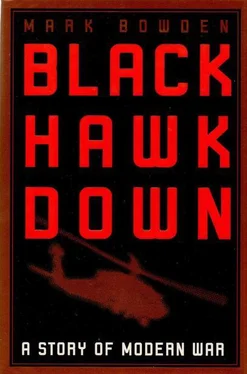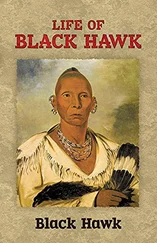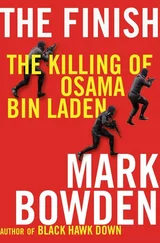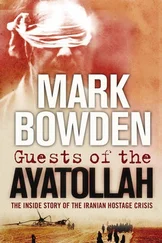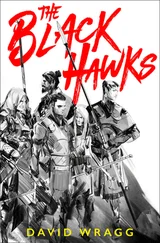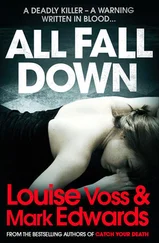Mark Bowden - Black Hawk Down
Здесь есть возможность читать онлайн «Mark Bowden - Black Hawk Down» весь текст электронной книги совершенно бесплатно (целиком полную версию без сокращений). В некоторых случаях можно слушать аудио, скачать через торрент в формате fb2 и присутствует краткое содержание. Город: New York, Год выпуска: 1999, ISBN: 1999, Издательство: Atlantic Monthly Press, Жанр: nonf_military, на английском языке. Описание произведения, (предисловие) а так же отзывы посетителей доступны на портале библиотеки ЛибКат.
- Название:Black Hawk Down
- Автор:
- Издательство:Atlantic Monthly Press
- Жанр:
- Год:1999
- Город:New York
- ISBN:978-0871137388
- Рейтинг книги:3 / 5. Голосов: 1
-
Избранное:Добавить в избранное
- Отзывы:
-
Ваша оценка:
- 60
- 1
- 2
- 3
- 4
- 5
Black Hawk Down: краткое содержание, описание и аннотация
Предлагаем к чтению аннотацию, описание, краткое содержание или предисловие (зависит от того, что написал сам автор книги «Black Hawk Down»). Если вы не нашли необходимую информацию о книге — напишите в комментариях, мы постараемся отыскать её.
Black Hawk Down — читать онлайн бесплатно полную книгу (весь текст) целиком
Ниже представлен текст книги, разбитый по страницам. Система сохранения места последней прочитанной страницы, позволяет с удобством читать онлайн бесплатно книгу «Black Hawk Down», без необходимости каждый раз заново искать на чём Вы остановились. Поставьте закладку, и сможете в любой момент перейти на страницу, на которой закончили чтение.
Интервал:
Закладка:
Rounds were chipping the walls around him, and he could hear them puncturing the helicopter’s thin metal hull. They were coming from a clump of trees about 20 yards away. Lamb told the men to heave some grenades over the wall. A Ranger lit up the trees with his SAW while Phipps and some of the other Rangers flung grenades.
There were explosions, then silence. Then one of the grenades they had thrown came flying back. The Ranger who threw it had forgotten to take the safety strap off.
“Grenade!” several voices screamed.
Phipps dived away from it. The explosion was like a gut punch. It sucked all the air out of him. He felt as if he was on fire, and his ears rang from the blast. When the initial ball of fire was gone, he still felt terrible burning on both legs and on his back. His nose and mouth stung with a bitter taste. His face was blackened and bruised, and his eyes had begun to swell shut.
When Phipps regained his senses, he lifted his head to look over his shoulder just as a Somali ran into the roadway and picked up the AK-47 from the pile of dead and wounded where Phipps had been shooting earlier. The man was taking aim at him when one of the D-boys back by the wall dropped him with a quick burst. The man’s head just came apart.
A Commando medic shouted at Phipps from the hole in the wall across the alley. If Phipps could move, it wouldn’t be necessary to brave fire retrieving him.
“Come on! Come on!” the medic urged.
Phipps tried to stand, but his left leg gave out. He tried again and fell again. He started to crawl. He still felt a fierce burning along his back and legs, and his left leg wasn’t working right. When he crawled close enough, the medic grabbed his face and pulled him the rest of the way in.
“Holy s-! I’m hit! I got shot! I got shot!” Phipps screamed.
“You’re all right,” the medic reassured him. “You’ll be all right.”
He tore open Phipps’ pants and applied a field dressing. The young Ranger joined the growing ranks of the wounded at Crash Site One.
CHAPTER 20
Uneasy Partners Under Heavy Fire
December 5, 1997
MINUTES AFTER orders came for the Rangers and Commando teams to make their way on foot to Cliff Wolcott’s crash site, the formations broke down. The boys moved out on their own. Some of the Rangers ran to catch up with them, but others fell behind, uncertain and confused.
Capt. Mike Steele, the Ranger commander, was outraged. They had gone just two blocks from their original positions at the target house, and already unit integrity had collapsed. There had been bad blood for weeks between Steele and many of the Commando men. Now it was boiling over in the middle of the worst firefight of their lives.
Steele felt outflanked. He had given orders for the Ranger Chalks to occupy the front and rear positions of an orderly movement of men to the crash site. The Commando teams were to stay in the middle. But a team of boys led by Sgt. First Class Paul Howe took off. Howe, a powerfully built veteran, knew the streets were a killing zone. Staying alive meant moving as if his hair were on fire.
The boys all advanced with such authority that some of the Rangers left their Chalk groupings and just stayed with them. It was reassuring just to be around the more seasoned men.
Petrified by the escalating volume of gunfire, Sgt. Mike Goodale was waiting for his turn to sprint across a street when one of the boys tapped him on the shoulder. Goodale recognized him. It was the short stocky one, Earl, Sgt. First Class Earl Fillmore, a good guy.
Fillmore winked at him and said: “It’s all right, kid. We’re coming out of this thing, man.”
It calmed Goodale. He believed Fillmore.
Steele watched with mounting distress as his formation broke down. He despised some of the Commando operators for their arrogance and their cocksure bravado. He respected their expertise and courage, but not their professionalism. They were disdainful of authority and discipline, and cavalier toward orders issued by anyone outside their tight, secret fraternity.
For his part, Howe thought Steele was a buffoon—a huge, overmuscled ex-jock still wrapped up in the naive rah-rah of his years playing football for the University of Georgia Bulldogs. Steele was too spit-and-polish for his taste. And Howe, who was 34, considered many of Steele’s Rangers little more than frightened, impressionable teenagers.
Now, an hour into the mission, the Rangers and Commando men were operating as separate units under competing commands. They even had different radio connections. Each commando had a radio earpiece under his little plastic hockey-style helmet—Steele called them “skateboard helmets"—and a microphone that wrapped around to his mouth. The Commando men were in constant touch with one another, but not with the Rangers. The Rangers relied mostly on shouted orders. They hadn’t perfected the elaborate hand signals the boys used when the noise of battle drowned out their radio talk.
Poor communications had come into play just minutes into the assault, when one side ended up literally shooting at the other. Howe and his Commando team had been on the roof of the target house, rounding up Somalian prisoners, when they fired at a Somali on a nearby rooftop. They were instantly peppered with return fire—not just from the Somali, but from a Ranger blocking position on the ground. A Ranger had evidently seen shooting from the roof and had fired away without checking it out.
The Commando men weren’t hit, but Howe was furious. He got on the radio and told the mission commander to order that idiot Steele to have his men stop shooting at their own people!
Howe’s team, with several Rangers in tow, was the first to round the corner on Freedom Road, a wide dirt street that stretched north to the crash site. The road sloped slightly downhill to where the other Rangers and rescue team had established a perimeter two blocks away. The team had just rounded the corner when an RPG hit the wall close by. It knocked some of Howe’s team off their feet. Howe felt the wallop of pressure in his ears and chest and dropped to one knee. One of his men had been hit with a small piece of shrapnel to his left side.
They had to find cover to treat the wounded man. Howe abruptly kicked in the door to a one-room house and barged in with his weapon ready. Less-experienced soldiers still felt normal civilian inhibitions about doing things like kicking in doors, but Howe and his men moved as if they owned the world. Every house was their house. If they needed shelter, they kicked in a door. Anyone who threatened them would be shot dead.
The house was empty. Howe and his men caught their breath and reloaded. Running under the weight of their gear was exhausting, and the body armor was like wearing a wet suit. They were sweating profusely and breathing heavily. Howe drew his knife and cut away the back of the wounded man’s uniform to check the shrapnel wound. There was a small hole in the man’s back, with a swollen, bruised ring around it. There was almost no blood. The swelling had closed the hole.
“You’re good to go,” Howe told him.
Behind them, Sgt. Goodale moved with a group of Rangers led by First Lt. Larry Perino. Goodale had just turned to squeeze off a round when he felt a stabbing pain. His right leg abruptly seized up and he fell over backward, right into Perino.
Perino heard Goodale say, “Ow!”
A bullet had entered his right thigh and passed through him, leaving a gaping exit wound on his right buttock. Goodale thought at that instant about a soldier who supposedly had lost an arm and a leg after a LAW—a light antitank weapon—he was carrying exploded when a round hit it. Goodale was carrying a LAW! He flailed wildly, trying to get the weapon off his shoulder.
Читать дальшеИнтервал:
Закладка:
Похожие книги на «Black Hawk Down»
Представляем Вашему вниманию похожие книги на «Black Hawk Down» списком для выбора. Мы отобрали схожую по названию и смыслу литературу в надежде предоставить читателям больше вариантов отыскать новые, интересные, ещё непрочитанные произведения.
Обсуждение, отзывы о книге «Black Hawk Down» и просто собственные мнения читателей. Оставьте ваши комментарии, напишите, что Вы думаете о произведении, его смысле или главных героях. Укажите что конкретно понравилось, а что нет, и почему Вы так считаете.
